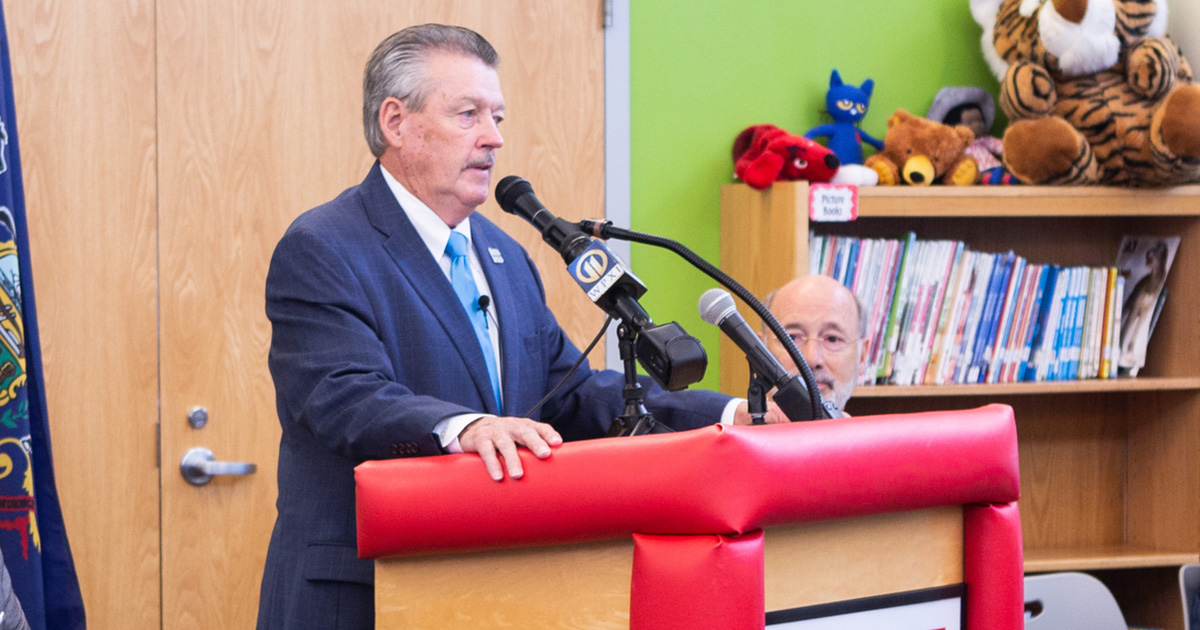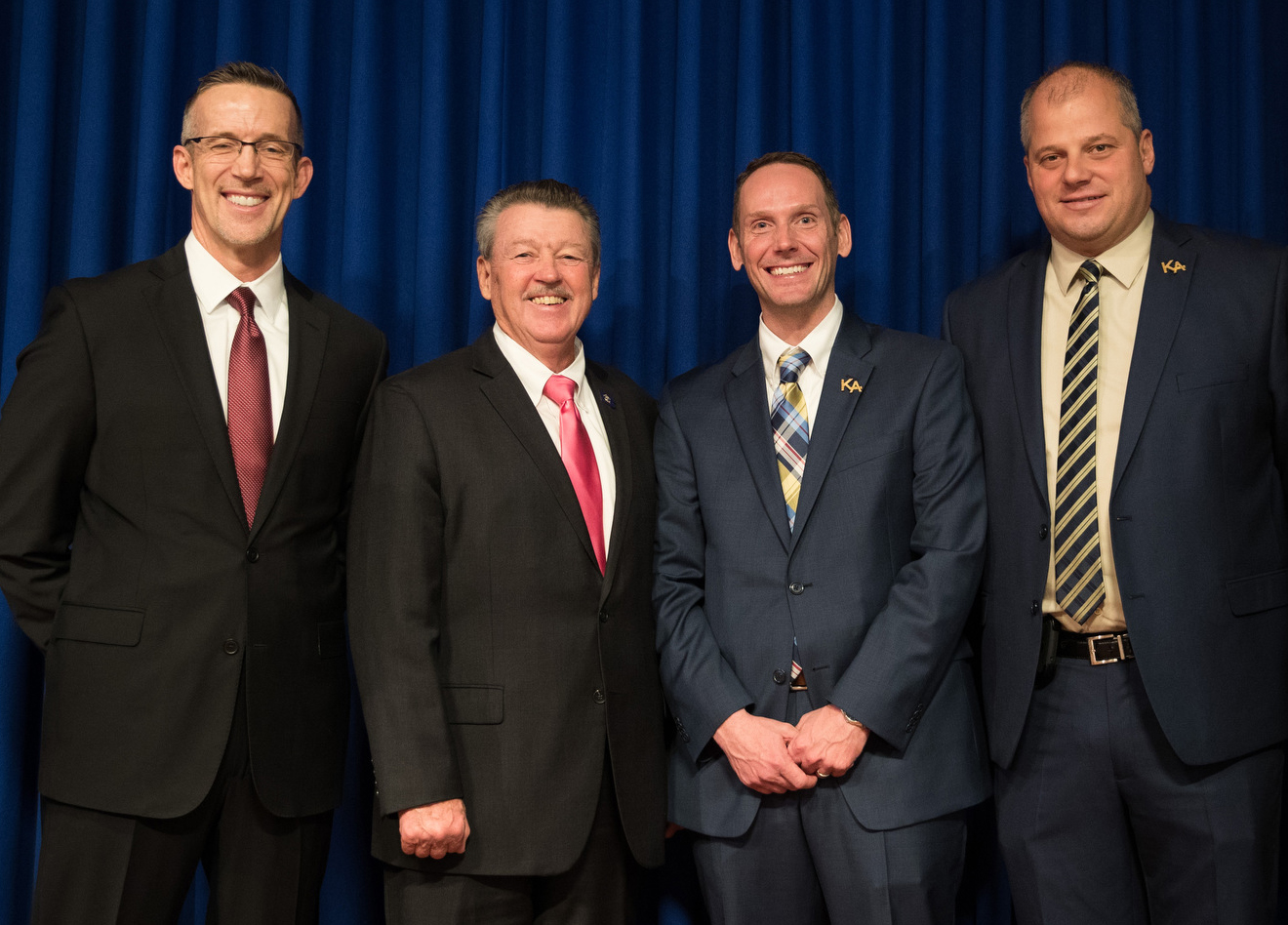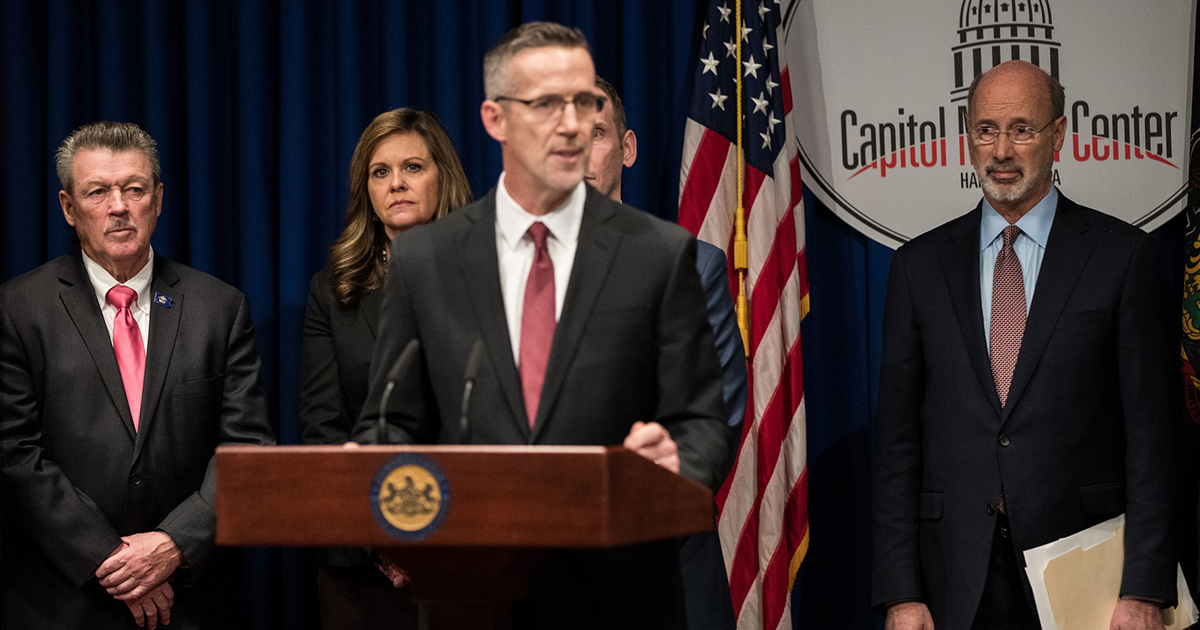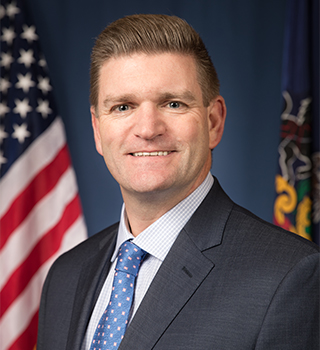
June 8, 2020
HARRISBURG – June 8, 2020 – Members of the Pennsylvania Senate Democratic Caucus announced the direction of $225 million in federal CARES Act funding to aid small businesses across the commonwealth. This funding was authorized by the recently enacted COVID-19 Emergency Supplement to the General Appropriation Act of 2019 and was a centerpiece of the caucus’ PA CARES Plan.
The aid will be distributed as follows: $100 million is set to go to the Main Street Business Revitalization Program, $100 million to the Historically Disadvantaged Business Revitalization Program, and $25 million for loan payment deferment and loss reserves for loans impacted by COVID-19. The aid will be directed by the Department of Community and Economic Development to Community Development Financial Institutions (CDFI), which are intimately familiar with the needs of the most vulnerable small businesses in our communities.
“I want to thank Governor Wolf for engaging leadership in the General Assembly to inform the process of moving federal aid out to those who have been most harmed by the COVID-19 pandemic. I also want to thank the leadership of the Senate Democratic caucus who worked with our members to formulate a strategic plan for the deployment of nearly $4 billion in federal assistance,” said state Senator John Blake (D-Lackawanna). “The Main Street Business Revitalization program is a reflection of that cooperation and leadership and it will meet Pennsylvania’s small business owners where they are, on Main Street, after nearly three months of lost or no sales. It will enable small business owners throughout the commonwealth to meet their insurance payments, rents, health insurance premiums, local taxes and other expenses that they otherwise could not meet due to lost sales. Finally, I want to thank the 17 CDFIs throughout the state as well as DCED for their professionalism, agility, urgency and dedication to getting this federal funding to the small businesses who need it most as quickly as possible.”
Eligible businesses will apply through one of the CDFI Network partners and will have to have been operating on or before February 15, 2020, and must have paid taxes to state and federal governments. Qualifying main street and historically disadvantaged small businesses must have 25 or fewer employees and experienced losses as a result of Gov. Tom Wolf’s March 19 stay-at-home order. Organizations seeking grants from the historically disadvantaged small businesses program must also be 51 percent owned and managed by socially and economically disadvantaged individuals.
“The announcement of the Main Street and Historically Disadvantaged Business Revitalization Programs will provide welcomed relief for mom and pop businesses in neighborhoods across the commonwealth,” said State Senator Vincent Hughes (D-Philadelphia/Montgomery). “Since this pandemic began, we have heard the needs of the auto body shops, the barbershops, the beauticians, the pizza shop owners, the soul food establishments and other businesses in our communities. The needs of these businesses that were unable to get much needed help from other state and federal programs were a priority in our Senate Democratic Caucus’ April 29 PA CARES Program announcement. For months, my office has worked with a network of trusted community organizations that have a proven track record of working with our small CDFIs to find a solution to assist our neighborhood businesses. I believe these programs are that solution. There is still more work to be done, but these programs are a win for Pennsylvania and its small businesses.”
Businesses will be eligible for up to $50,000 in grants. Grants can be used to cover operating expenses during the shutdown and in the transition period to reopening, technical assistance and training, debt payment relief for CDFI borrowers and loan loss reserves.
“Our small businesses all across the state made sacrifices so that we could flatten the curve of COVID-19 and save lives,” said Senate Democratic Leader Jay Costa, Jr. “Now as we begin to recover, our businesses will need and deserve assistance to reopen their doors, rehire their staff and serve our communities again. We thank them for their patience through this difficult time, and are ready to offer the programs, loans and assistance they need.”
Businesses will be required to submit proposals for review documenting sales losses, projected revenues, the duration of closure as a result of COVID-19, and relief receipts for other federal, state and local government aid. Eligible businesses will apply directly through a local CDFI.
“One of the goals of the pandemic-recovery stimulus plan that I offered in March, was to jump-start business operations and speed the economic recovery by making resources readily available to get more men and women back to work quicker,” Senator Brewster said. “Using federal CARE dollars to bolster business and smooth the back-to-work transition is critically important. The caucus CARES initiative includes one piece of the plan and will be especially useful to small businesses as they cover expenses and manage start-up costs. Plus, it will usher in help for small businesses who may not have been able to access other state or federal business assistance programs.”
Distributed funds will be monitored by DCED to track the total number of grants awarded under these programs including county, the number of jobs saved by the grants, the total amount of loan payment and deferment, administrative costs and more.
“Thank you to Governor Wolf and his administration for recognizing the need for our Main Street Business Revitalization Program and incorporating that proposal into the Commonwealth’s plan to support our small businesses, which represent nearly half of the private sector workforce in Pennsylvania – 2.5 million jobs,” said Senator Iovino (D-Allegheny/Washington). “Small businesses are the job creators in our communities, the revenue generators for our Commonwealth, and the cornerstone of vibrant main streets. As small business owners are struggling to hang on, this $225 million grant package is exactly the kind of lifeline that these economic drivers need to support our recovery.”
For more about the caucus’ comprehensive, people-focused COVID-19 recovery plan, visit pasenate.com/pacares.

September 4, 2019
McKeesport – Sept. 4, 2019 – State Sen. Jim Brewster (D-Allegheny/Westmoreland) welcomed Pennsylvania Gov. Tom Wolf to Twin Rivers Elementary School today to discuss the governor’s comprehensive plan to reform charter schools.
“Our laws governing the operations of charter and cyber-charter schools need to be reformed. We need to bring greater accountability and transparency so that our children are well educated, and our taxpayers protected,” Brewster said.
“For too long, charter operations have been cloaked in secrecy with the law having multiple loopholes and little oversight capability.”
The governor’s plan is a multi-part effort including executive actions to re-write charter regulations and push comprehensive charter reform legislation.
The governor’s plan includes instituting greater transparency in admissions and enrollment policies to halt discrimination, opening charter school operations, mandating ethical standards for charter boards, new auditing and oversight to prevent overcharging taxpayers.
Brewster has long been a legislative champion of charter school reform. For several sessions, he has offered sweeping charter reform bills to rein in out-of-control cyber and brick-and-mortar charter schools. His legislation includes greater oversight by local school districts, financial accountability and built-in protections for taxpayers.
“As a long-time advocate for charter reform, I believe the governor has offered responsible administrative changes and proposed meaningful legislative solutions. Charters need to complement, not compete with, traditional public schools.”
Charter schools should work in concert with traditional public schools and their operations need to be coordinated with local school districts, Brewster said.
The lawmaker also pointed to needed changes in the statewide charter appeal board to improve the charter school law.
Brewster said he was pleased to welcome the governor to the Mon Valley and thanked the governor for making charter reform a priority.
-30-
December 12, 2017

Pictured left to right Dr. Timothy P. Scott, superintendent Kiski Area School District; Sen. Brewster; Matthew Smith, assistant principal Kiski Area High School; Chad Roland, principal Kiski Area High School. Brewster, and the officials from KASD, participated in news conference with Gov. Tom Wolf to highlight the school’s participation in the College Readiness Program and its high test scores.
Harrisburg – December 12, 2017 – State Sen. Jim Brewster (D-Allegheny/Westmoreland), Gov. Tom Wolf, and Education Secretary Pedro Rivera helped recognize the achievement of the students from the Kiski Area High School as they increased their qualifying scores by 185 percent in AP math, science and English.
“This was quite an achievement for the students, teachers, administrators and others who were involved,” Brewster said at the Capitol event. “I wanted to congratulate the officials from the school district for their work in helping student increase their test scores.”
Kiski’s improved score ranks among the highest in the nation, according to the National Math and Science Initiative (NMSI). In fact, it was among the top two schools in the country this year among those that had at least 50 qualifying scores in the 2015-16 school year.
ExxonMobil and its subsidiary, XTO, partnered with NMSI to support and implement the College Readiness Program (CRP). As a result, early last year 14 Pennsylvania schools began implementing the CRP.

Sen. Brewster, Dr. Timothy P. Scott, superintendent Kiski Area School District speaking, Gov. Tom Wolf at the Capitol news conference discussing Kiski’s success in improving STEM test scores.
CRP includes training for teachers and staff, study sessions and additional resources. CRP helps students develop strength in science, technology, English and math.
“The increase in Kiski’s scores were the result of hard work and the implementation of the program,” Brewster said. “They are getting results and their achievement should be recognized.”
According to NMSI, the CRP has expanded to more than 1,000 schools in 34 states.
-30-

October 23, 2017

Senator Jim Brewster

Senator Vincent Hughes

Senator John Yudichak
Op-ed by state Sen. John T. Yudichak (D-Luzerne), Sen. Vincent J. Hughes (D-Philadelphia), Sen. Jim Brewster (D-Allegheny/Westmoreland)
October 23, 2017 − National Manufacturing Day is the first Friday in October. While noting the importance of manufacturing on this one day is important, the focus on rebuilding our manufacturing base should be a priority for the governor and the General Assembly each day.
That is why we’ve joined together to sponsor a comprehensive package of legislation that is designed to address the needs of manufacturers, our workers and the communities where they live, work and raise their families.
Our legislation seeks to better coordinate policy through the creation of a “Chief Manufacturing Officer;” infuse new dollars into targeted vocational and technical training; expand the Manufacturing Tax Credit and earmark credits to help build manufacturing in distressed communities while aiding disadvantaged, minority, women and veteran-owned businesses.
There is no doubt that manufacturing is a critically important part of our economy. Large employers who drive local economies and small mom-and-pop entrepreneurs are all key aspects. According to the Center for Manufacturing Research, manufacturing accounts for 12 percent of our gross state product, employs nearly 10 percent of our workers — over 565,000 — and accounts for $33 billion in annual exports.
The value of manufacturing is even more pronounced in rural areas. A recent study by the Northeast Pennsylvania Industrial Resource Center indicates that manufacturing represents almost 15 percent of non-urban jobs, with average compensation more than 20 percent above the regional worker wage level.
To ensure that manufacturing remains a viable and valuable force in our state economy, policymakers need to stay up with trends and accommodate changes in the market. If we fail to work collaboratively, we will face losing more jobs and business opportunities. According to the state Bureau of Labor Statistics, since 2001 Pennsylvania has lost 264,000 jobs in manufacturing and 5,400 establishments.
There are a great many challenges that manufacturers face. A recent study of national manufacturing by Ball State University indicated that manufacturing employment has been affected by three distinct factors: productivity, trade and domestic demand.
Our workers and our manufacturing establishments have become more innovative, use more technology based systems and require fewer workers per location. Yet, even with these well-entrenched changes now altering the manufacturing landscape, there is still room for lawmakers to aid large and small manufacturing businesses.
Senate Bill 923 would create a “Chief Manufacturing Officer” within the governor’s office to provide advice on economic policy and be a singular voice for manufacturers at the highest level. The measure also establishes a “Manufacturing Competitiveness Board” to help develop manufacturing strategy.
Another bill (Senate Bill 924) would direct up to $5 million to a grant program for vocational technical schools, vocational programs and equipment purchases. The legislation would increase the maximum loan amount from $5 million to $7.5 million and authorize loans to retrofit equipment. This investment would help schools acquire the equipment necessary to produce a skilled workforce that can be employed in state-of-the-art manufacturing operations.
The third legislative piece in the package would maximize the Manufacturing Tax Credit. Senate Bill 925 would increase the credit cap to $12.5 million from its current $4 million, expand the credit to include job training costs, and allow small manufacturers to apply jointly for the credit. A $2.5 million piece of the tax credit would be reserved for businesses located in distressed communities in addition to disadvantaged, minority, women and veterans owned businesses.
Our legislative work is designed to follow up on a detailed report authored earlier this decade by the Governor’s Manufacturing Advisory Council. In this sweeping analysis of manufacturing, the blue-ribbon panel recommended several actions that could aid manufacturing.
Specifically, the study reported that 82 percent of manufacturers had a serious gap in worker skill level and 74 percent indicated that the skill-gap hampered the ability to expand. Meanwhile, 78 percent of manufacturers were negatively impacted by a lack of access to capital.
Moreover, the report emphasizes the need for a single point of contact in state government to connect manufacturers to solutions. The report also recommends focusing attention on information sharing to enhance productivity.
Policy proposals to address each of these needs are key parts of our legislative plan.
The series of legislative measures that we’ve offered will address the critical needs of manufacturers. In this month when Manufacturing Day is recognized, it is time for the General Assembly and the governor to focus on policies to rebuild our communities and make our workforce a priority.
-30-








